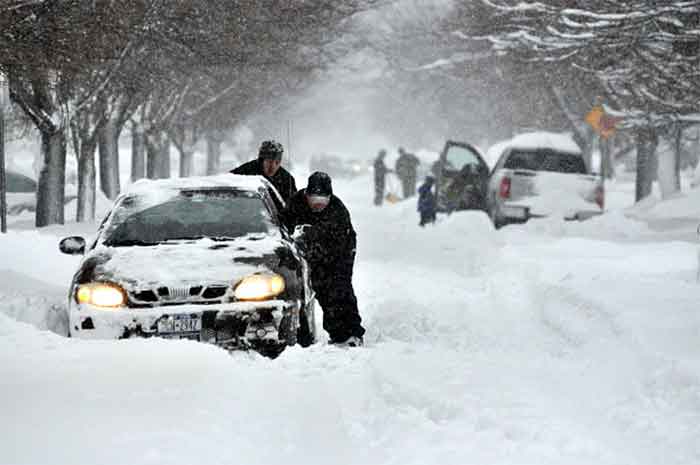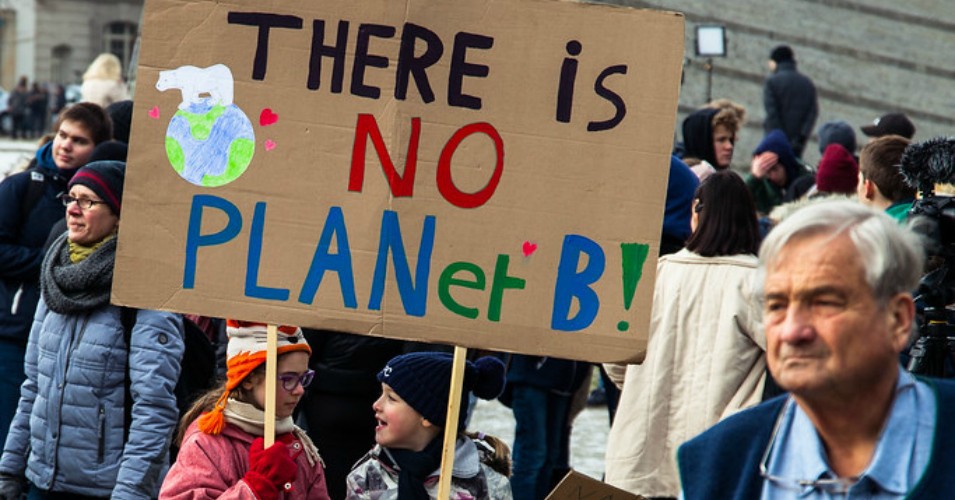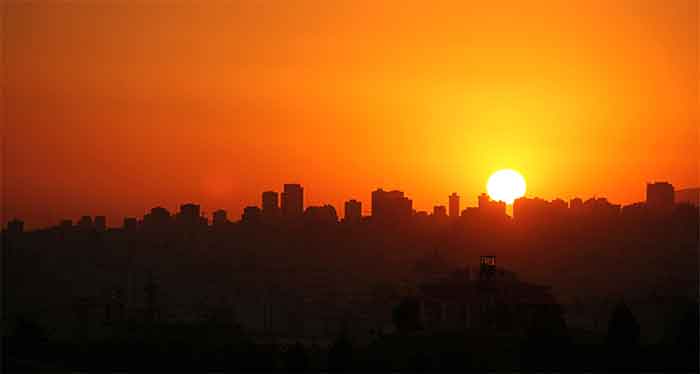
Metaphor consists in giving the thing a name that belongs to something else.
Aristotle, Poetics (1457b)
It all seemed familiar. Anthropomorphised Mother Nature in vengeful mood; humans wondering if they might meet a frozen demise in trapped vehicles; the planners taking stock as to how best to cope with grim circumstances. The New York State governor Kathy Hochul was happy to stick her head out in declaring the latest lethal winter storm in Buffalo to be nothing less than a “war with Mother Nature, and she has been hitting us with everything she has.”
Having found her less than imaginative metaphor, the governor ran with it, suggesting that Mother Nature had laid waste to the region around Buffalo. “It is [like] giong to a war zone, and the vehicles along the sides of the roads are shocking.”
Sappy media outlets have also taken up Hochul’s call from the parapets of battle, scouring the record for heartfelt accounts of the human spirit. The Guardian warmed to “stories of endurance, survival and rescue” – these are the sorts of things you expect when under attack from an omnipotent enemy. “Good Samaritans took stranded travellers into their homes; strangers worked together to help a snow-trapped expectant mother through some birth.”
Metaphors of war and the environment are rarely helpful. They conjure up false notions of battle, fictional platoons, ready reserves and resources marshalled against a retributive god or some sentient force of agency. Unfortunately, they are everywhere, and often conceptually shaky. “A solidified metaphor, a metaphor accepted unambiguously as truth,” writes Scarlet Marquette with accuracy, “is, in fact, a most pernicious force, inimical to truth.”
Officials have made it a habit to see war everywhere, often involving inanimate and abstract notions that do more to distort than clarify. They operate as enormous distractions in the service of not making policy. There are wars on sugar, salt, fat, poverty, homelessness and that colossally failed project known as the “War against Drugs”.
Such tendencies have seen a slew of publications, many of the specialised variety. One co-authored article in the dedicated journal Metaphor and Symbol argues that “war metaphors are omnipresent because (a) they draw on basic and widely shared schematic knowledge that efficiently structures our ability to reason and communicate about many different types of situations, and (b) they reliably express an urgent, negatively valenced emotional tone that captures attention and motivates action.”
That the action is necessarily well-directed or founded is another matter. Susan Sontag picked up on this point in examining illness and its various metaphors, writing that “military metaphors contribute to the stigmatizing of certain illnesses and, by extension, those who are ill”.
But the theme of Nature can also be taken from the other side: that humanity has brought wrath against itself for its plundering, fecund, and warring ways. Nature, in that sense, is the recipient of human bad behaviour, with humans refusing to come to the table and make peace.
The UN environment chief, Inger Andersen, sees much in that comparison. Unlike Hochul, her concern lies in the concern that human beings have been the unilateral aggressors, exploiters, and marauders. “As far as biodiversity is concerned, we are at war with nature. We need to make peace with nature. Because nature is what sustains everything on Earth … the science is unequivocal.”
Pausing to reflect on the birth of the 8 billionth human being was an occasion to celebrate, but “the more people there are, the more we put the Earth under heavy pressure.” That pressure came in the form of “the five horsemen of the biodiversity apocalypse”, namely, land-use, overexploitation, pollution, the broader climate crisis, and the spread of invasive species.
The same sentiment is expressed by the United Nations Secretary General António Guterres, who shifts the focus to humanity as the warring problem on Planet Earth. He puts his hope in the children to save us from this dilemma, hoping the young will be far more sensible in making peace. “I am continuously inspired by their commitment & leadership in tackling the war against nature.”
If one starts off with the premise that human beings are prone to such innate war making tendencies – and this premise has been challenged – alternatives have been suggested. The philosopher William James proposed a re-channelling of such desires in his address, “The Moral Equivalent of War.” Instead of killing each other, humanity might go about other pursuits.
Unfortunately, such redirections bring environmental consequences James could scant see. “To the coal mines and iron mines, to freight trains … to road-building and tunnel-making, to foundries and stoke holes, and to the frames of skyscrapers, would our gilded youth be drafted off, according to their choice, to get the childishness knocked out of them, and to come back into society with healthier sympathies and soberer ideas.”
Another rechannelling is required, but it will not be found in the exhortations to survival suggested by Hochul. Her language is not that of humans bound to nature as collaborative ecological agents, but warriors besieged. In that analysis, nature itself is stigmatised. Like Medea, she will kill her children, and is accordingly to be feared.
Dr. Binoy Kampmark was a Commonwealth Scholar at Selwyn College, Cambridge. He currently lectures at RMIT University. Email: [email protected]

















































